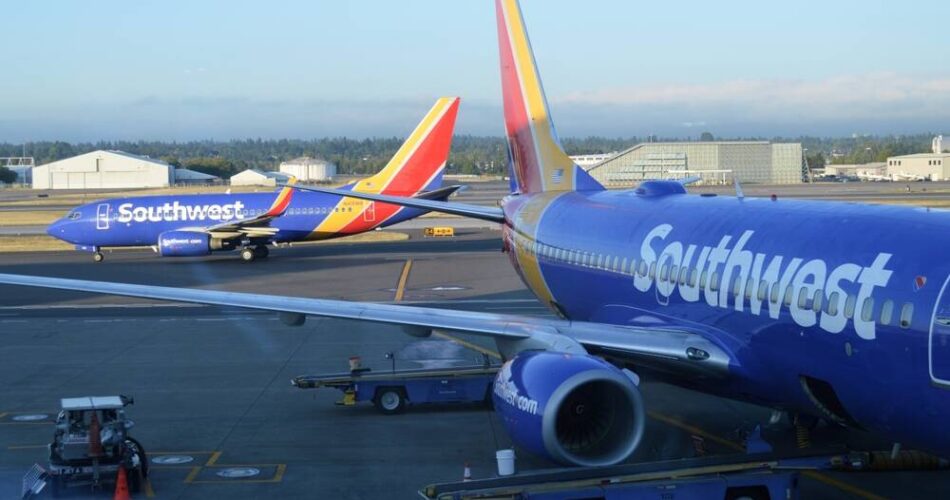The nationwide systems meltdown at Southwest Airlines should have prompted a quick return of funds to ticketed customers after thousands of flights were cancelled between December 24 to January 2, according to a freshly filed lawsuit.
In the first of what is sure to be many sueballs over the Christmas and New Year IT calamity, lead plaintiff Eric Capdeville, looking to lead a class action against the US-based airline, says he booked two tickets for travel Tuesday, December 27, 2022. Capdeville claims when he found he could not take the flight he booked, and Southwest “could not offer any comparable accommodations on another flight,” he was “not given a refund, but was only offered a credit for use on a future flight.”
The suit [PDF], filed in Louisiana at the weekend, goes on to allege that Southwest’s response to its “internally created crisis was to suggest customers could submit receipts for flight cancellations… for consideration reimbursement.”
The claim is that this process isn’t speedy enough, and that Southwest’s actions broke its Contract of Carriage, which mandates refunds “in this situation” and also allegedly specifies they should be “in accordance with the form of payment utilized for the Ticket” – so refunds should go to the payment card or bank account that paid out for them.
The lawsuit also points out, rather saliently, that Southwest “does not sell airline tickets on any third-party global distribution platform, requiring all customers to purchase directly from Southwest whether it be through its website or by calling a Southwest booking line to make a reservation.”
The implication is that customers shouldn’t have to submit receipts. We have asked Southwest if this is a technical possibility on its payment platforms, although it does seem that its operations are back on track, according to the company. It said that “as of this past weekend, our flight volume has recovered to normal levels.”
It has not been specific about the legacy software problems, save to say that it wasn’t fit for purpose for scheduling when the winter staffing crisis hit.
The company is the largest of the Big Four domestic US airlines, transporting 130 million passengers a year. According to the suit, the airline cancelled 14,500 flights from December 23 to 28, with 2,500 cancelled on December 28 alone.
Chief operating officer Andrew Watterson – on a call with employees – last week blamed the extended delays and cancelations on outdated scheduling software, which ultimately forced crews to schedule flights manually.
Phone systems were also reportedly down, and while planes and crew were both available, the staff couldn’t get schedules sorted that would comply with Federal Aviation Administration rules, which regulate when flight crews can work. “The process of matching up those crew members with the aircraft could not be handled by our technology,” Watterson reportedly said on the call. Such was the burden on crew, the airline decided to cancel even more flights.
The plaintiff is looking to certify the suit on behalf of all of the airline’s customers who didn’t get a refund and weren’t reimbursed for incurred expenses as a result of the cancellation.
Capdeville’s suit claims Southwest was continuing to offer credits instead of refunds “for flights that they cancel” at the time of filing, saying this supports its case for a declaratory judgement as the case works its way through the courts.
Southwest, however, told The Register: “There are several high priority efforts under way to do right by our customers, including processing refunds from cancelled flights and reimbursing customers for expenses incurred as a result of the irregular operations.
“In fact, on December 28, we launched a website to assist customers with requesting refunds and reimbursements, and those requests are being processed and issued. We have a long and proud 51-year history of delivering on our customers’ expectations, and we are committed to the all-important imperative of taking care of them.”
It also said it was providing “significantly impacted” customers “whose flights were scheduled to operate between 12/24/22 and 1/2/23, but were cancelled or significantly delayed greater than three hours” 25,000 of its rewards program points with a value of more than $300. ®
Source link



